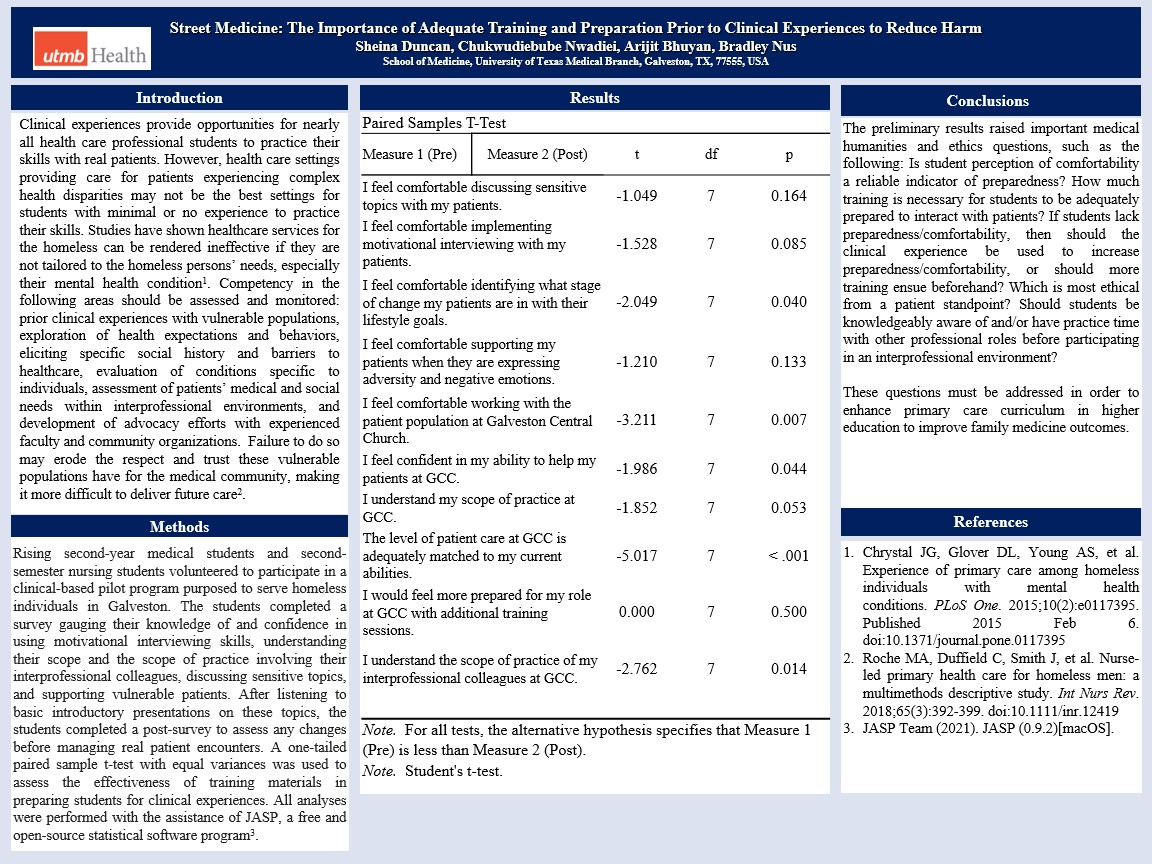SRFP102: The Importance of Adequate Training and Preparation Prior to Clinical Experiences to Reduce Harm
Sheina Duncan; Bradley Nus; Arijit Bhuyan, BS; Chukwudiebube Nwadiei
Abstract
Objectives: Upon completion of the presentations, students should report increased knowledge of how to implement presentation topics and increased comfortability in interacting with the target patient population within an interprofessional team.
Study Design: Longitudinal Study
Setting: Rising healthcare professionals volunteered to participate in a clinical-based pilot program serving homeless individuals at a local church.
Population Studied: 32 rising healthcare professionals from various occupations at the University of Texas Medical Branch were recruited by Street Medicine Interest Group and community engagement faculty to serve the patient population.
Intervention: Students completed surveys before and after completing various training sessions to gauge their ability in using motivational interviewing skills, understanding their interprofessional role, discussing sensitive topics, and supporting vulnerable patients.
Main Outcome Measures: Competency of various clinical skills and interprofessional capabilities.
Results: Participating students showed improved competency in understanding their interprofessional role, despite not receiving any formal training on this topic. Similarly, students showed improved ability in identifying which “stage of change” patients were in regarding their lifestyle goals, as well as self-confidence in working with the homeless population after brief, introductory presentations.
Conclusion: The preliminary results raised important medical humanities questions, such as the relationship between student perceived preparedness and healthcare quality as well as the amount, type, and delivery method of necessary training when treating vulnerable populations. These ethical dilemmas must be addressed in order to enhance primary care curriculum in higher education to improve family medicine outcomes.

Jack Westfall
jwestfall@aafp.org 11/21/2021This is a great topic and research study. Nice work. Thanks